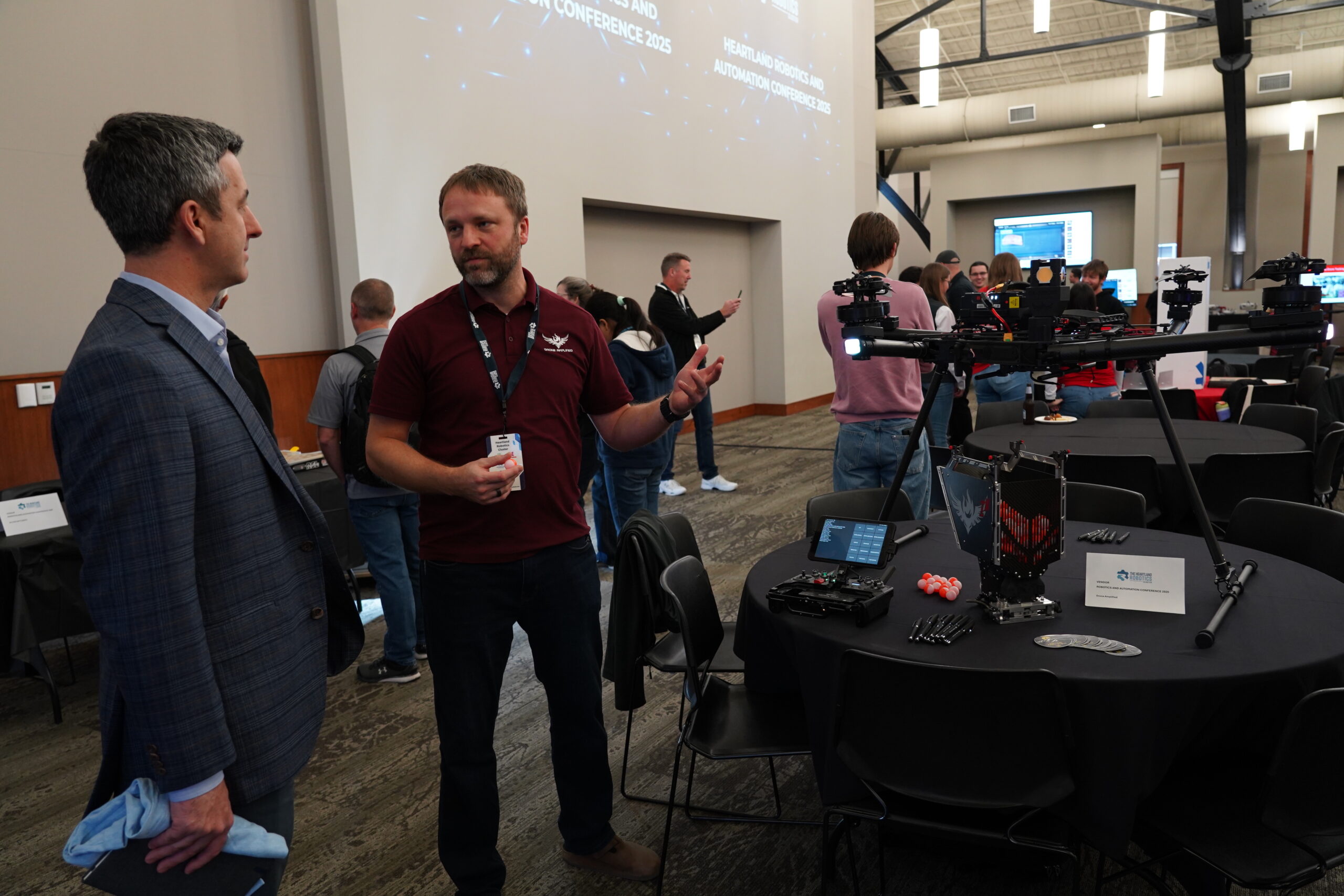Meet Paul Jarrett, Co-founder & CEO @ Bulu
How would you describe the startup culture in Nebraska?
The startup culture in Nebraska is small, but passionate. There’s a strong sense of community, considering Nebraska consistently places near last for venture capital dollars invested. I guess that might be what brings us together, as well! I’ve always felt that people in Nebraska genuinely root for each other. When I lived on the East Coast in New York City, there was always a vibe of, “What can you do for me?” that never sat well with me. After moving to the West Coast, specifically San Francisco, picking up on the Silicon Valley vibes of, “Hey, look at me!” was kind of exhausting.
In the Midwest, for better or worse, we have more of a “How can I help you?” vibe, which I think is core to a passion and community I see and feel here. Nebraskans have that roll-up-the-sleeves mentality—the resourcefulness is real. Around these parts, we don’t like to throw money at problems. We solve problems with what we have.
How do you balance taking risks and making calculated decisions in pursuit of innovation?
I think that risk is part of the calculation because there’s no evolution without risk. Balancing the risk level at the right time is a constant tightrope walk. For me, it’s all about surrounding yourself with great people, setting aside time, money and resources to make informed “bets.” Personally, I’m not afraid of making big, risky bets, but there are people on the Bulu Crew who are. And regardless of the risk and reward, it’s more important to me to keep everyone paddling together. We talk about this internally, and I believe more companies need to be aware of it.
With innovation, I think it’s crucial that the key decision-makers develop the “worst-case scenario.” This allows all parties to not only live with the decision, but to paddle together because they have some guardrails in place. This approach has allowed us to, frankly, stay alive at a few key points over the past 12 years. It allowed us to innovate without going all-in and risking the entire business. It’s about managing evolution rather than avoiding risk, in my humble opinion.
How do you define success and what metrics do you pay the most attention to?
Over the years my definition of success has changed immensely. When we first started as Bulu Box, a consumer packaged goods subscription box in 2012, the success metric was solely revenue. We focused on revenue because, at the time, it was the number that was focused on for raising capital. As the business evolved and we understood the metrics of a subscription box, we became more focused on customer acquisition costs (CAC), lifetime customer value (LTV), and payback time (PB) or the CAC: LTV ratios. Over the past 12 years, our Team has done a phenomenal job of adjusting metrics that help us measure goals and success. Since purchasing Bulu, Inc. fully in October 2023, we have standard revenue, profit, etc. growth metrics along with goals around diversifying our client base.
However, how I define success and what metrics we track have changed immensely. Nowadays, I’m much more interested in what type of benefits, 401k, and opportunities we can provide to our employees because that feels more like success to me. We also look at a lot of client speed, accuracy and endorsement metrics because over time we’ve truly come to understand that if our clients (partners) and employees (teammates) are happy, a lot of things take care of themselves. Sure, we could push harder to make more revenue and profit faster but success isn’t just about financials; it’s about building something that lasts and creates value for everyone involved.
What are the top one or two challenges / opportunities Nebraska startups face?
One of the top challenges for Nebraska startups or most Midwest startups (sans Colorado ) is access to capital. Let’s be real, we’re not sitting on the same type of deep pockets as places like Silicon Valley or New York. The money flow here just isn’t the same. It’s a different game. So, Nebraska startups have to get scrappy and creative with funding. But the opportunity in that is when you build something lean, sustainable and scalable with limited resources, you’re setting up for long-term success. You’re not throwing money at problems—you are actually solving them with real strategy. I’ve seen firsthand how that mindset creates businesses with a stronger foundation that last because you’re not reliant on endless rounds of funding. You have to be smarter with cash.
The second challenge is talent. Attracting and retaining top talent in Nebraska isn’t easy. Our winters are cold, and the big-city buzz can lure away a lot of people. But this challenge comes with a unique opportunity. Nebraska has an incredible quality of life and a cost of living, making it affordable to work and build a fulfilling life. If business leaders would start to promote and show top talent what’s possible here, we will attract the right people who are passionate about meaningful work in a place where they can truly thrive. It’s not just about the money, or city, it’s about quality of life and building something bigger than yourself. That’s the pitch Nebraska startups can own.
What is one emerging industry or technology that you believe will have a significant impact on the Nebraska startup ecosystem in the next few years?
Artificial intelligence and automation are already starting to shake things up in logistics and supply chains, and Nebraska businesses can benefit massively from that. Frankly, it’s why we’re in the industry we’re in here at Bulu. We’re a state that moves a lot of goods—whether it’s grain, livestock or consumer products and the potential to optimize those systems through AI is huge. Startups that figure out how to integrate AI and automation into traditional industries, especially in supply chain management, are going to have a significant impact.
Imagine real-time tracking, predictive analytics for shipping or automated fulfillment centers all over the Midwest. Those kinds of innovations aren’t just the future; they’re the key to staying competitive. So, whether it’s on the farm or in the warehouse, the startups that embrace these emerging technologies are going to define the next chapter of Nebraska’s business landscape. Think about it: If we embrace technology while staying true to our Midwestern “How can I help you?” attitude, people will naturally be drawn to work with and alongside Nebraska’s startup community.



